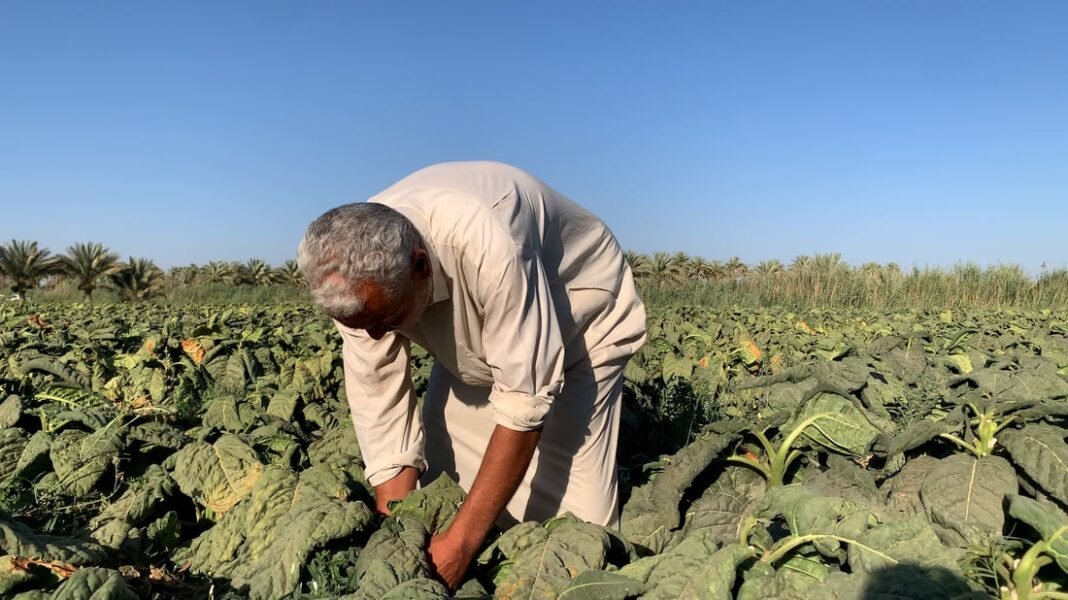In western Karbala, farmers are reviving a nearly forgotten tradition—cultivating waterpipe tobacco. The Iraq tobacco farming revival is gaining momentum in fertile districts along the Euphrates River, particularly in Shatt Allah and Al-Oweij, about 25 kilometers east of Karbala.
Farmer Ahmed Talib explained that tobacco first arrived in the area after World War I via India. The region’s rich soil allowed the crop to thrive for decades. “It’s a crop we inherited from our fathers and grandfathers,” he said. Although farmers now also grow an American variety with a higher yield, many still prefer the older Indian strain for its richer flavor.
The cultivation process spans over 10 months. Farmers begin in December by preparing seedlings in controlled environments. By mid-February, they transplant the plants into open fields. “Each plant goes through thinning, pruning, and trimming,” said farmer Adel Hasnawi. “We start harvesting in June.”
After harvest, workers dry the tobacco leaves, remove the stems, and soak them in saltwater. This treatment helps preserve them for up to 15 years. “We keep the leaves covered for about a week, then pack and sell them by October,” Hasnawi added. Each acre produces around three tons, with a selling price of 3.6 million dinars per ton, or roughly $2,553.
The Iraq tobacco farming revival comes after years of decline. The area once cultivated 3,000 acres of tobacco, but after 2003, only 25 acres remained. As well as Cheaper imports and the closure of domestic processing plants devastated the local industry. “Without a factory, demand dropped,” Talib said. We use our tobacco directly in waterpipes, unlike manufacturers in other countries who produce flavored products.
Growing tobacco requires effort and investment. Each acre costs over 1.5 million dinars—around $1,064—to grow. Expenses include irrigation, fertilizers, and general maintenance. Yet despite these challenges, many farmers see tobacco as a profitable option—if given the right support.
Ali Naour, head of the Agricultural Associations Union in Hindiya, stressed the crop’s potential. “This type of tobacco is valuable,” he said. “We urge the government to support these farmers and reopen local factories to process and market the harvest.”
As traditional methods return, so do hopes of rural revival. The Iraq tobacco farming revival is more than a business—it’s a cultural comeback rooted in history and heritage.


